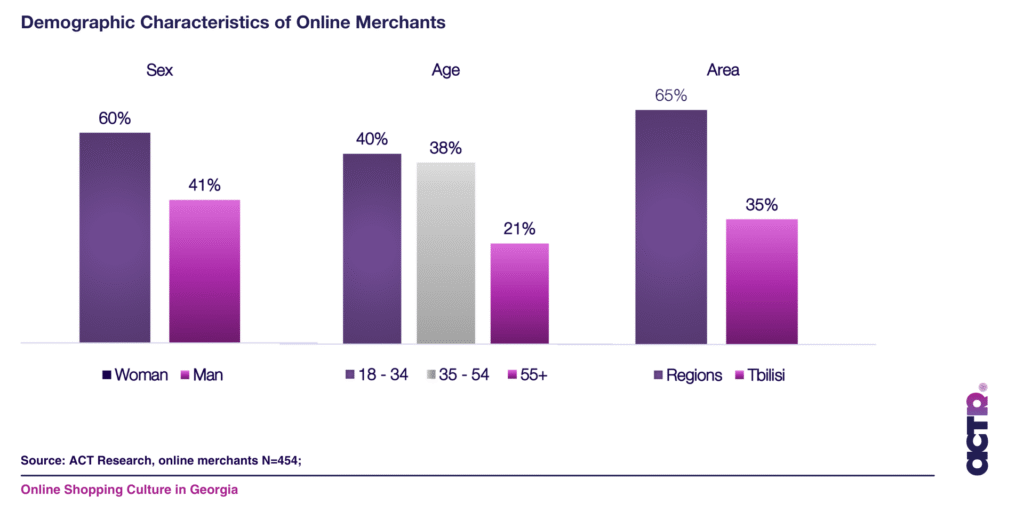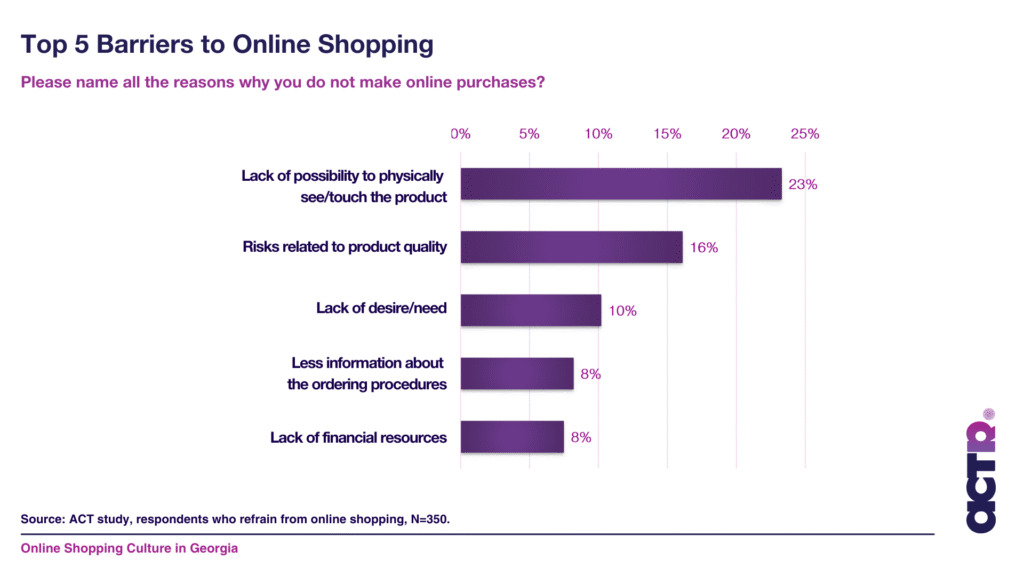Online Shopping Culture in Georgia – New Research Findings by ACTR

Online Shopping Culture in Georgia – New Research Findings by ACTR
Over the past decade, the global online shopping market has undergone significant transformation. The development of digital platforms has erased geographical barriers – giving consumers unlimited choices beyond their local marketplaces. Today, a person can purchase products from anywhere in the world.
In this context, it’s important to examine the Georgian market. A survey conducted by ACT Research titled “Online Shopping Culture in Georgia“ provides insights into the behavior and attitudes of Georgian consumers toward online shopping: Who shops online? What do people buy in the digital space? How often? What barriers exist when it comes to online commerce?
Who has been shopping online in Georgia over the past 6 months?
The research revealed that a significant portion of respondents (54%) are engaged in online shopping. For their purchases, consumers use both Georgian and international platforms.

The demographic profile of online shoppers is particularly interesting:
- The data shows that women are more likely to shop online (60%) compared to men (41%);
- The majority of online shoppers fall within the 18-54 age group, comprising a total of 79%;
- Notably, a significant share of online shoppers (65%) are from the regions, which may be explained by the limited variety of products and retail outlets available locally.

Frequency of Online Shopping:
The research showed that half (50%) of Georgian online shoppers make purchases actively (at least once a month), while the other half shops less frequently (once every 2-3 months or even less often).

It is also interesting to look at the comparative analysis of the frequency of using local and international platforms:
- The research revealed that Georgian consumers use international online platforms more actively for regular purchases (once a month or more frequently – 51%) than local ones (once a month or more frequently – 41%).
What do Georgians buy online?
When shopping online, the most common behavior is the purchase of clothing and accessories (47%). In addition, household items (29%) and children’s products (20%) are also popular compared to other categories.

Popular foreign websites and platforms for online shopping
he research results show that among foreign platforms, Temu enjoys clear popularity (75%), while it is noteworthy that the global online retail giant Amazon (16%) is significantly less popular.
It should also be noted here that a significant share of Temu’s users come from regional areas.

Why do Georgian customers refrain from online shopping, considering the last 6 months?
The reasons for Georgian customers’ reluctance to shop online are diverse. However, the most significant barrier is identified as purchasing without seeing the product and the associated quality risks. This indicates that it is very important for customers to see the product in person before making a purchase.

*The survey was conducted through random selection among 804 adult residents nationwide in Georgia. The survey took place from April 22 to 26, 2025. The statistical margin of error does not exceed 3.5% on average. The method used was a telephone survey.
___
This study was conducted at the initiative of the company “ACT Research” (ACTR) within the framework of its Corporate Social Responsibility (CSR) program, under the rubric “The Voice of the Customer.”
ACTR’s CSR policy is based on an approach focused on public well-being and the generation of timely, evidence-based data to better understand societal issues. To this end, ACTR periodically conducts public opinion research in four main areas:
“Voice of Society” – studying social and civic attitudes;
“Voice of the Consumer” – analysis of consumer behavior and needs;
“Voice of Business” – research on private sector trends and expectations;
“Digital Trends” – monitoring technological and digital changes.
The goal of the initiative is to improve access to data and promote informed, public interest–based decision-making in both the private and public sectors.
ACTR ensures data transparency and accessibility – as one of the key mechanisms for creating public value.